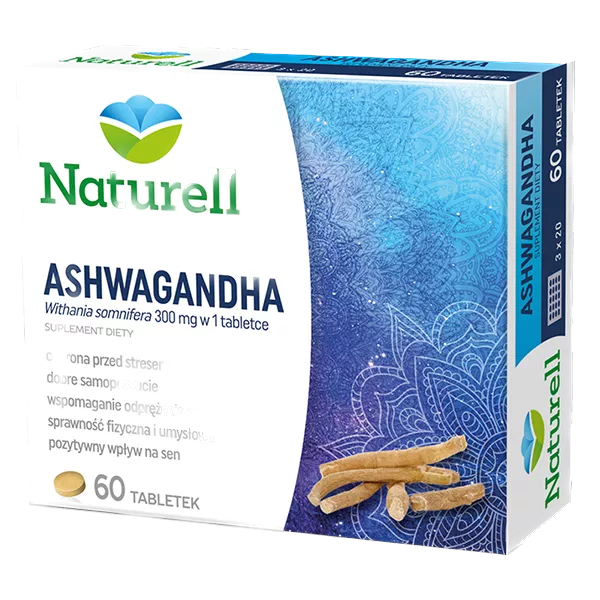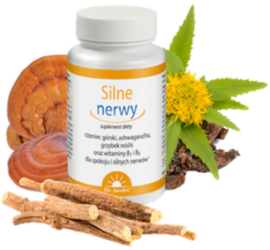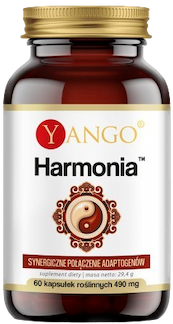Indian ginseng - what it is, properties, effects, opinions
Indian ginseng (or ashwagandha) is an interesting plant with many health-promoting properties.


Learn more about our editorial process
.

Learn more about our editorial process
.

Learn more about our editorial process
.

Learn more about our editorial process
.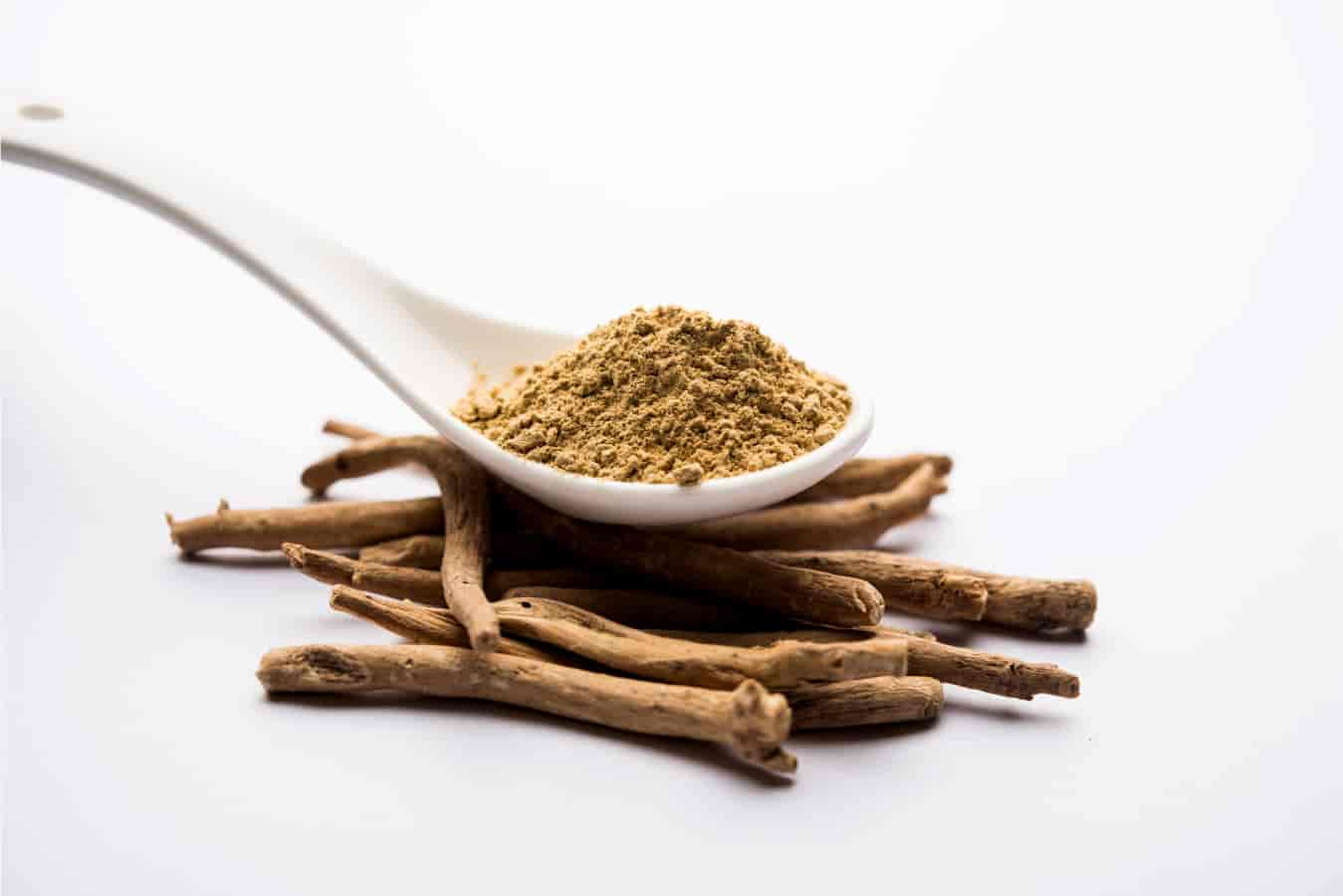
Why you can trust us
Articles on Natu.Care are written based on scientific research, data from government websites and other reliable sources. The texts are written in cooperation with doctors, nutritionists and other health and beauty experts. Articles are reviewed before publication and during significant updates.
.Learn more about our editorial process
.Information about advertisements
Content on Natu.Care may contain links to products from the sale of which we may receive a commission. When creating content, we adhere to high editorial standards and take care to be objective about the products discussed. The presence of affiliate links is not dictated by our partners, and we select the products we review ourselves completely independently.
.Learn more about our terms and Conditions
.Indian ginseng (or ashwagandha) is a plant found naturally in Asia and Africa. Its health-promoting effects attract many people year after year. In this article you will find information on the properties, dosage and indications for Indian ginseng supplementation.
Indian ginseng has anti-anxiety properties, improves sleep quality, and increases fertility. Sounds great, right? That's exactly what Indian ginseng is supposed to be. These and other properties encourage many people to supplement with this adaptogen. What is Indian ginseng? How does it work? Is it really safe? Answers to these and other questions can be found in this article.
.
Description of contents:
.- What is Indian ginseng? .
- Indian ginseng, Korean ginseng or Siberian ginseng - which one to choose? .
- Indian ginseng - properties .
- How to dose Indian ginseng?
- Indian ginseng - supplementation .
- Contraindications to the use of Indian ginseng .
- Indian ginseng - side effects .
- Can Indian ginseng interact with medications .
- Summary .
See also:
- Ashwagandha
- Ashwagandha SFD
- Ashwagandha Aliness
- Ashwagandha Naturell
- Ashwagandha Swanson
- Solgar's Ashwagandha
- Ashwagandha - when does it start working? .
- CBD oil
- CBD
- Adaptogens
What is Indian ginseng?
.
Indian ginseng is an evergreen shrub that grows in Asia and Africa. Humans used it as far back as several thousand years ago to cope with lack of energy, stress or impaired concentration. It is considered by many to be the most important herb in Ayurveda (traditional Indian medicine)and.
Indian ginseng is also known as ashwagandha, sluggish vitania or sleeping sickness. It is a adaptogen, an agent that is thought to bring us into a state of homeostasis (internal balance). There are over 70 adaptogens - Indian ginseng is one of the most popularand.
Ashwagandha Naturell
Product description
Extract from ashwagandha leaves and root will boost energy, overcome fatigue, improve memory and concentration. The product is recommended during periods of increased physical tension or intense physical activity.
Pros and cons
Extract from ashwagandha leaves and root will boost energy, overcome fatigue, improve memory and concentration. The product is recommended during periods of increased physical tension or intense physical activity.
Additional information
Extract from ashwagandha leaves and root will boost energy, overcome fatigue, improve memory and concentration. The product is recommended during periods of increased physical tension or intense physical activity.
Dr. Jacob's Strong Nerves
Product description
Dr. Jacob's Strong Nerves is a dietary supplement thatóry supports the nervous system and helps the body to cope with stress. Thanks to the synergistic combination of beneficial ingredientsós, Strong Nerves relieves anxiety symptoms, increases mental and physical stamina, and supports concentration.
The benefits of this supplement are particularly important for peopleóly exposed to chronic stress, those with sleep problems or employeesóly. It is worth mentioning that the supplement can also help to improve mental well-being and support the immune system.
.All this makes Dr. Jacob's Strong Nerves an excellent remedy for anyone looking for comprehensive support for their nervous system and overall mental performance.
Pros and cons
Dr. Jacob's Strong Nerves is a dietary supplement thatóry supports the nervous system and helps the body to cope with stress. Thanks to the synergistic combination of beneficial ingredientsós, Strong Nerves relieves anxiety symptoms, increases mental and physical stamina, and supports concentration.
The benefits of this supplement are particularly important for peopleóly exposed to chronic stress, those with sleep problems or employeesóly. It is worth mentioning that the supplement can also help to improve mental well-being and support the immune system.
.All this makes Dr. Jacob's Strong Nerves an excellent remedy for anyone looking for comprehensive support for their nervous system and overall mental performance.
Additional information
Dr. Jacob's Strong Nerves is a dietary supplement thatóry supports the nervous system and helps the body to cope with stress. Thanks to the synergistic combination of beneficial ingredientsós, Strong Nerves relieves anxiety symptoms, increases mental and physical stamina, and supports concentration.
The benefits of this supplement are particularly important for peopleóly exposed to chronic stress, those with sleep problems or employeesóly. It is worth mentioning that the supplement can also help to improve mental well-being and support the immune system.
.All this makes Dr. Jacob's Strong Nerves an excellent remedy for anyone looking for comprehensive support for their nervous system and overall mental performance.
Solve Labs Brain Tech Memory & Focus, adaptogens, capsules

- Composition: bacopa monieri, gotu kola, rhoiola rosea, ginseng, zinc gluconate, choline, vitamin B6
- Form: capsules .
- Packaging: 30 or 60 capsules .
- Dose: 2 capsules daily .
- Sufficient for: 10 or 20 days .
Product description
Adaptogens, vitamins and minerals to support the mózg and nervous system. Brain Tech has been developed for people needing long-lasting concentration, improved learning ability, memory and increased resistance to stress.
Pros and cons
Adaptogens, vitamins and minerals to support the mózg and nervous system. Brain Tech has been developed for people needing long-lasting concentration, improved learning ability, memory and increased resistance to stress.
Additional information
Adaptogens, vitamins and minerals to support the mózg and nervous system. Brain Tech has been developed for people needing long-lasting concentration, improved learning ability, memory and increased resistance to stress.
Adaptogens, vitamins and minerals to support the mózg and nervous system. Brain Tech has been developed for people needing long-lasting concentration, improved learning ability, memory and increased resistance to stress.
YANGO, Harmony, adaptogens, capsules
Product description
This dietary supplement contains a synergistic combination of 5 plant extracts that positively influence the body's homeostasis and well-being. The product is recommended for people living under stress, tension and those who are physically active.
Pros and cons
This dietary supplement contains a synergistic combination of 5 plant extracts that positively influence the body's homeostasis and well-being. The product is recommended for people living under stress, tension and those who are physically active.
Additional information
This dietary supplement contains a synergistic combination of 5 plant extracts that positively influence the body's homeostasis and well-being. The product is recommended for people living under stress, tension and those who are physically active.
Indian ginseng, Korean ginseng or Siberian ginseng - which one to choose?
.
There are several types of ginseng. The most popular of these are Indian ginseng, Korean ginseng and Siberian ginseng. What are the characteristics of the different plants?
Korean ginseng
.
Korean ginseng has become famous for its health-promoting effects. It is a plant found mainly in China, Russia and...Korea. Some studies suggest, that Korean ginseng has positive effects on immunity, mood and cognitive functions such as orientation and memory. It may also prevent Alzheimer's disease and support memoryand.
Siberian ginseng
.
Siberian ginseng, contrary to appearances is not found exclusively in Siberia. Its native habitat is in China, Russia, Korea and Japan. It is also known as eleutherococcus spinosus. It counteracts fatigue, as well as anxiety and depression. Furthermore, Siberian ginseng positively affects the nervous system and counteracts stressand.
You may be interested in Omega-3: characteristics, effects, use, types
.
Indian ginseng
.
It is Indian ginseng that we are taking a closer look at today. It is mainly found in the Middle East and also in some areas of Africa. It has been used for hundreds of years, but has only recently been studied. It can support overall wellbeing, as well as increase physical performanceand.
Indian ginseng - properties
.
The so-called vitanolides (bioactive compounds) are responsible for the health-promoting properties of Indian ginseng.
What does Indian ginseng help with?
.
Sleep problems
.
Prolonged sleep disorders can lead to problems such as diabetes, obesity, depression, stroke, and even heart attack. Studies suggest, that Indian ginseng improves total sleep time and sleep quality - both among people with insomnia and everyone elseand.
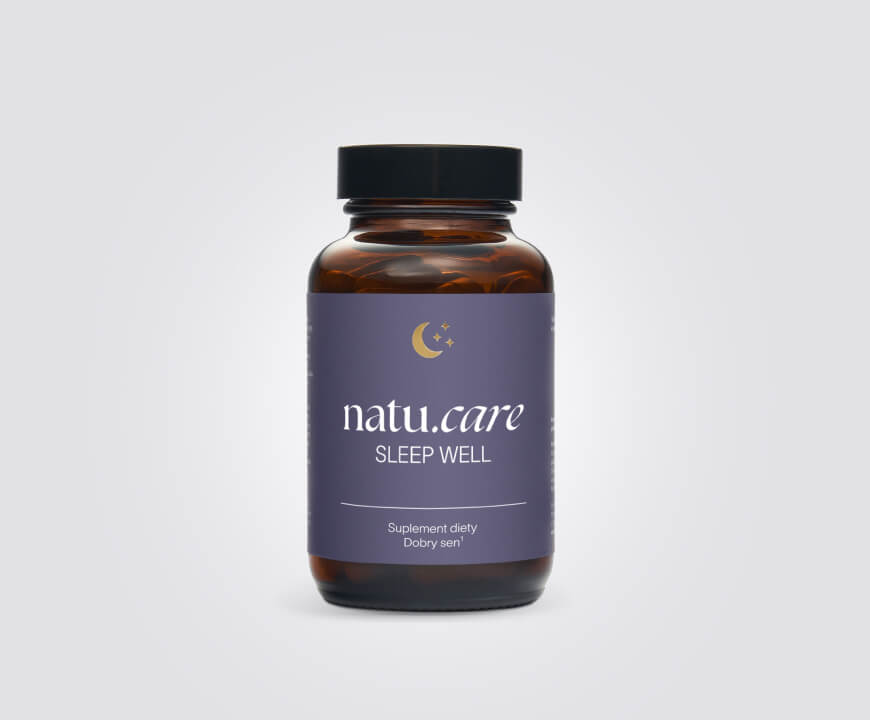
Sleep Well - dietary supplement for good sleep and tranquillity
.Sleep Well is a calming and relaxing dietary supplement with a standardised complex of CALMOMIX® herbal extracts and high quality magnesium.
.
Stress
.
One of the more popular actions of Indian ginseng is to effectively combat stress. The adaptogen relieves tension and has an anti-anxiety effect. Indian ginseng is also responsible for lowering cortisol (stress hormone) levels in the bodyand.
Pantothenic acid is also responsible for controlling cortisol levels. Would you like to learn more about it? You are invited to: Pantothenic acid - what it is, effects, sources, excess, in pregnancy
.
Mental health conditions
.
Some research suggests that Indian ginseng alleviates the symptoms of some mental health conditions. Taking 1,000 mg of Indian ginseng extract for 12 weeks resulted in a reduction in depressive symptoms and anxiety in people with schizophreniaand.
Another study found that the plant supports the treatment of bipolar affective disorder or schizophrenia.
Physical performance
.
Indian ginseng may have a positive effect on athletic performance. An analysis involving 12 studies suggests that taking doses of 120 to 1,250 mg of the extract resulted in increased physical performance in athletes. A review of four other studies found that Indian ginseng can increase aerobic ceilingand.
You may be interested in: Magnesium - properties, deficiency symptoms, best sources
.
Fertility in men
.
Taking Indian ginseng may have a positive effect on male fertility and testosterone levels in the body. One study suggests that supplementation with an extract of this plant resulted in an increase in testosterone (male sex hormone) levels by 14.7% and DHEA-S (adrenal hormone) levels by 18%. Furthermore, Indian ginseng increases sperm motilityand.
DHEA-S is an adrenal hormone that is secreted in both men and women. Its biochemical metabolism results in the formation of sex hormones such as testosterone, androstendione and estrogen, for example..
 .
.
Aleksandra CudnaDietitian
.
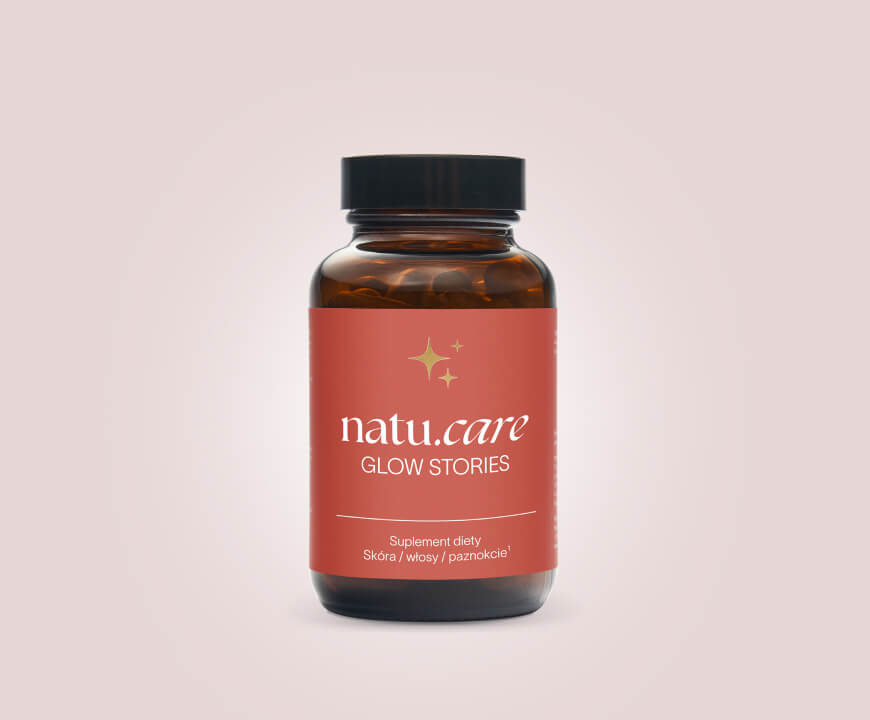
Glow Stories - for skin, hair and nail health
.Product with high-quality folic acid Quatrefolic®, bamboo shoot extract and ingredients that have a positive effect on skin, hair and nails.
Vitamin B3 and zinc also positively affect male sexual performance. I invite you to check out these articles!
How else does Indian ginseng workand?
-
Promotes the treatment of fertility problems in women.
-
Reduces levels of bad cholesterol (LDL).
Helps to treat fertility problems in women.
-
Reduces overall feelings of fatigue.
Reduces fatigue.
-
Improves the functioning of the immune system.
- Improves the functioning of the immune system.
-
Improves mood and increases motivation to perform.
- Improves immune function.
-
Improves the treatment of hypothyroidism.
Improves the treatment of hypothyroidism.
-
Neutralizes free radicals (has antioxidant effects).
Has a positive effect on the treatment of hypothyroidism.
See also:
.
- Naturell's Ashwagandha
- Ashwagandha Aliness
- Ashwagandha Swanson
- Solgar's Ashwagandha
- Ashwagandha SFD
- When ashwagandha starts working
- Ashwagandha in the morning or evening
- Ashwagandha dosage
How to dosage Indian ginseng?
.
Everyone should follow the manufacturer's recommendations on the leaflet. Taking higher doses of Indian ginseng than recommended will never benefit our health. Remember that Indian ginseng does not have an immediate effect, so you will have to wait up to several weeks for the effects of its use.
.
Depending on the form of administration, supplement manufacturers recommend taking: 300 to 500 mg per day of Indian ginseng extract; 1-2 tablespoons (approximately 5 to 7 g) - cut root; up to 3 grams per day - powdered root..
 .
.
Dr. n. med. Witold Tomaszewski
.Indian ginseng - supplementation
.
Hundreds of products, and each looks very similar. We all know it well, and in the end the choice of supplement will affect our health. Dr Witold Tomaszewski, M.D., suggests what to look for when choosing an Indian ginseng preparation.
Parameters
.
Dr Witold Tomaszewski, M.D., emphasises that when choosing an Indian ginseng supplement, two parameters should be noted.
-
DER (Drug Extract Ratio). It defines how much plant material has been used to produce one part of a given extract. If the DER is 5:1, this means that 5 grams of material yielded 1 gram of extract. As the DER increases, the potency of a given extract also increases.
-
Standardisation. This is a very important parameter that determines whether an active ingredient has been included in a given product, and also in what quantity. In the case of Indian ginseng, standardisation should refer to the vitanolid content. Do not buy products that contain less than 2.5% of these compounds!
Form of administration
.
There are numerous forms of administration of Indian ginseng on the market. Which are the most popular ones?"
Forms of administration of Indian ginsengand:
- tablets, .
- capsules, .
- dried, .
- drops, .
- powdered root, .
Choosing a particular form depends entirely on one's preference. Do you have trouble swallowing tablets? Opt for drops or dried!"
How long to take?
.
You want results after just a few days of taking Indian ginseng? That's not possible. The pharmacist's master emphasises that depending on what you are supplementing Indian ginseng for, you will wait a shorter or longer time for the effectsand.
Some people will take it for sleep disorders, while others will expect increased athletic potential. It all boils down to the fact that we can wait from two weeks, to as long as two months for the effectsand.
Who should consider supplementation?
.
Most of us experience constant stress and exhaustion. Chronic tension and a lack of calmness can result in serious health problems. If you face such conditions on a daily basis - bet on Indian ginseng, says MScand.
Contraindications to the use of Indian ginseng
.
Although Indian ginseng is seen as a safe remedy, it not everyone can use it.
Who should avoid this plantand?
- .
-
Pregnant and breastfeeding women.
-
Persons suffering from cancer or diabetes.
- Persons with cancer or diabetes.
-
Patients struggling with blood clotting disorders, lupus, ulcers, thyroid disease, as well as multiple sclerosis and rheumatoid arthritis.
- Patients with blood clotting disorders, lupus, ulcers, thyroid disease, as well as multiple sclerosis and rheumatoid arthritis.
Indian ginseng - side effects
.
Although it is considered safe, Indian ginseng can cause side effectsand. Which ones?
-
Vomiting,
. -
Stomach pains,
- Vomiting,
- Vomiting.
-
insomnia,
.
-
nausea,
.
-
headaches,
.
Want to avoid side effects? Use the correct dosage recommended by the manufacturer and check the interactions of the supplement in question with other agents. These are two simple rules that are able to protect you from most side effects..
 .
.
Dr. n. med. Witold Tomaszewski
.Can Indian ginseng interact with medicines?"
.
Indian ginseng may react with certain medications. Therefore, people who are taking any medication or supplement should consult a doctor before taking Indian ginseng. Only a specialist can give you the green light for supplementation.
Indian ginseng may interact with medicationsand:
-
used in the treatment of thyroid disease,
. -
inhibiting effects on the immune system,
- .
-
anti-coagulants,
anti-coagulants.
-
diabetes,
.
-
on hypertension,
.
-
antidepressants and anti-anxiety drugs,
- .
It doesn't stop there, Indian ginseng can also interact with supplements that cause drowsiness, such as valerian and St. John's wort.
See also:
- Berberine
- Wild rose
- Curcuma
- Curcuma in tablets
- Piperine
- Creatine
- Passionflower
- Cordyceps
- Reishi
- Hogweed
- Lions Mane
- Chaga
Summary
.
Summary
.From this article remember:
.- Indian ginseng is one of the most popular and best studied adaptogens.
- Indian ginseng is one of the most popular and best studied adaptogens.
- Indian ginseng, Korean ginseng and Siberian ginseng are three different plants with distinct effects.
- Indian ginseng is one of the most widely studied adaptogens.
- Reducing stress, alleviating sleep problems, and supporting the treatment of mental health conditions are just some of the health-promoting properties of Indian ginseng .
- Dosing of Indian ginseng depends on the recommendations of the respective manufacturer.
- When choosing an Indian ginseng supplement, pay attention to the DER and its standardisation. .
- Indian ginseng should not be taken, especially by pregnant and breastfeeding women, people with diabetes and cancer and some patients. .
- Stomach pain, drowsiness or nausea are some of the side effects of taking Indian ginseng .
- Indian ginseng may interact with some medicines and supplements.
- Indian ginseng may interact with some medicines and supplements.
FAQ
.Does Indian ginseng have a positive effect on wrinkles?
.Yes, research suggests that Indian ginseng delays the ageing process, including the visibility of wrinkles. Ashwagandha has powerful antioxidant and anti-inflammatory properties, which helps protect the skin from oxidative stress and the effects of free radicals. Additionally, Indian ginseng can support the production of collagen, which will improve the elasticity and firmness of the skin.
See also: Facial collagen - Ranking + effects and application
.What does Indian ginseng work for?
.Indian ginseng, or the popular ashwagandha, is a plant with comprehensive health-promoting effects. Indian ginseng reduces stress, lowers cortisol (stress hormone) levels, reduces fatigue, increases performance in athletes, and supports sleep quality, the immune and endocrine systems.
Is it worth taking Indian ginseng?
.Indian ginseng works best against fatigue, stress and sleep problems. However, if your general wellbeing is not the best and you feel that there is something wrong with your body - don't bail out with Indian ginseng. See a specialist - this is the only way to get professional help and get your life back on track.
See also: Sedation pills (medicines and supplements) - Psychologist's ranking and advice
.Does ashwagandha harm the liver?
.Although Indian ginseng is used in Ayuvervedic natural medicine and is considered safe, there is still a lack of research from its long-term use and safety in people with liver disease. A limited animal study showed that long-term supplementation of ashwagandha in high doses may impair liver function, but these effects were not confirmed in human studies.
Is ashwagandha a steroid?
.No, ashwagandha is not a steroid. Ashwagandha is a plant whose root contains natural active ingredients that are used in Ayurvedic natural medicine as a remedy for various health ailments such as stress, immune problems or inflammatory diseases. Indian ginseng has an adaptogenic effect, meaning that it helps the body to adapt and cope with stress and normalises hormone levels and energy levels.
See also how other plants can improve your health and mental wellbeing.
Is it possible to take Indian ginseng continuously?
.No. Although Indian ginseng is not addictive, breaks should be taken during supplementation. It is best to take it for up to three months and then take a break for four weeks. You will see the first effects after a few weeks. Also remember moderation - too high doses of Indian ginseng can result in vomiting, stomach aches and a worsened sense of well-being.
Is Indian ginseng a psychotropic?
.No, Indian ginseng is not a psychotropic agent. Ashwagandha is an adaptogen, meaning that it helps the body cope with stress, as well as regulate hormones and energy levels. Research suggests that ashwagandha may have beneficial effects on mental health, such as by reducing symptoms of stress and anxiety, as well as improving memory and concentration.
Remember that each body reacts individually to ashwagandha, which may be associated with different side effects or interactions with other supplements and medications, so consult your doctor before starting ashwagandha supplementation.
See also: What is CBD and how does it work?
..
Sources
.See all
.Banskota, A. H., Tezuka, Y., Le Tran, Q., & Kadota, S. (2003). Chemical constituents and biological activities of Vietnamese medicinal plants. Current Topics in Medicinal Chemistry, 3(2), 227-248. https://doi.org/10.2174/1568026033392516
Chandrasekhar, K., Kapoor, J., & Anishetty, S. (2012). A Prospective, Randomized Double-Blind, Placebo-Controlled Study of Safety and Efficacy of a High-Concentration Full-Spectrum Extract of Ashwagandha Root in Reducing Stress and Anxiety in Adults. Indian Journal of Psychological Medicine, 34(3), 255-262. https://doi.org/10.4103/0253-7176.106022
Cheah, K. L., Norhayati, M. N., Husniati Yaacob, L., & Abdul Rahman, R. (2021). Effect of Ashwagandha (Withania somnifera) extract on sleep: A systematic review and meta-analysis. PloS One, 16(9), e0257843. https://doi.org/10.1371/journal.pone.0257843
Choudhary, B., Shetty, A., & Langade, D. G. (2015). Efficacy of Ashwagandha (Withania somnifera [L.] Dunal) in improving cardiorespiratory endurance in healthy athletic adults. Ayu, 36(1), 63-68. https://doi.org/10.4103/0974-8520.169002
Colten, H. R., Altevogt, B. M., & Research, I. of M. (US) C. on S. M. and. (2006). Extent and Health Consequences of Chronic Sleep Loss and Sleep Disorders. In Sleep Disorders and Sleep Deprivation: An Unmet Public Health Problem. National Academies Press (US). https://www.ncbi.nlm.nih.gov/books/NBK19961/
.Durg, S., Shivaram, S. B., & Bavage, S. (2018). Withania somnifera (Indian ginseng) in male infertility: An evidence-based systematic review and meta-analysis. Phytomedicine, 50, 247-256. https://doi.org/10.1016/j.phymed.2017.11.011
Jia, L., & Zhao, Y. (2009). Current evaluation of the millennium phytomedicine--ginseng (I): Etymology, pharmacognosy, phytochemistry, market and regulations. Current Medicinal Chemistry, 16(19), 2475-2484. https://doi.org/10.2174/092986709788682146
Liu, C. X., & Xiao, P. G. (1992). Recent advances on ginseng research in China. Journal of Ethnopharmacology, 36(1), 27-38. https://doi.org/10.1016/0378-8741(92)90057-x
Lopresti, A. L., Drummond, P. D., & Smith, S. J. (2019). A Randomized, Double-Blind, Placebo-Controlled, Crossover Study Examining the Hormonal and Vitality Effects of Ashwagandha (Withania somnifera) in Aging, Overweight Males. American Journal of Men's Health, 13(2), 1557988319835985. https://doi.org/10.1177/1557988319835985
Nag, S. A., Qin, J.-J., Wang, W., Wang, M.-H., Wang, H., & Zhang, R. (2012). Ginsenosides as Anticancer Agents: In vitro and in vivo Activities, Structure-Activity Relationships, and Molecular Mechanisms of Action. Frontiers in Pharmacology, 3, 25. https://doi.org/10.3389/fphar.2012.00025
Panossian, A., & Wikman, G. (2010). Effects of Adaptogens on the Central Nervous System and the Molecular Mechanisms Associated with Their Stress-Protective Activity. Pharmaceuticals, 3(1), 188-224. https://doi.org/10.3390/ph3010188
Sanada, S., Kondo, N., Shoji, J., Tanaka, O., & Shibata, S. (1974). Studies on the Saponins of Ginseng. II. Structures of Ginsenoside-Re, -Rf and -Rg<SUB>2</SUB>. Chemical & Pharmaceutical Bulletin, 22(10), 2407-2412. https://doi.org/10.1248/cpb.22.2407
Tandon, N., & Yadav, S. S. (2020). Safety and clinical effectiveness of Withania Somnifera (Linn.) Dunal root in human ailments. Journal of Ethnopharmacology, 255, 112768. https://doi.org/10.1016/j.jep.2020.112768
Verma, N., Gupta, S. K., Tiwari, S., & Mishra, A. K. (2021). Safety of Ashwagandha Root Extract: A Randomized, Placebo-Controlled, study in Healthy Volunteers. Complementary Therapies in Medicine, 57, 102642. https://doi.org/10.1016/j.ctim.2020.102642
Wang, C.-Z., Aung, H. H., Ni, M., Wu, J.-A., Tong, R., Wicks, S., He, T.-C., & Yuan, C.-S. (2007). Red American ginseng: Ginsenoside constituents and antiproliferative activities of heat-processed Panax quinquefolius roots. Planta Medica, 73(7), 669-674. https://doi.org/10.1055/s-2007-981524
Yun, T. K. (2001). Brief introduction of Panax ginseng C.A. Meyer. Journal of Korean Medical Science, 16 Suppl(Suppl), S3-5. https://doi.org/10.3346/jkms.2001.16.S.S3
.
Editorials
Meet the team


Editor
Graduate of Journalism and Artes Liberales at the University of Warsaw. Since 2017, he has been working with the biggest portals in Poland and abroad as an editor. Previously worked for 3 years in one of the leading pharmaceutical companies - he knows the health and beauty industry inside out. In his free time, he most enjoys playing tennis or skiing.
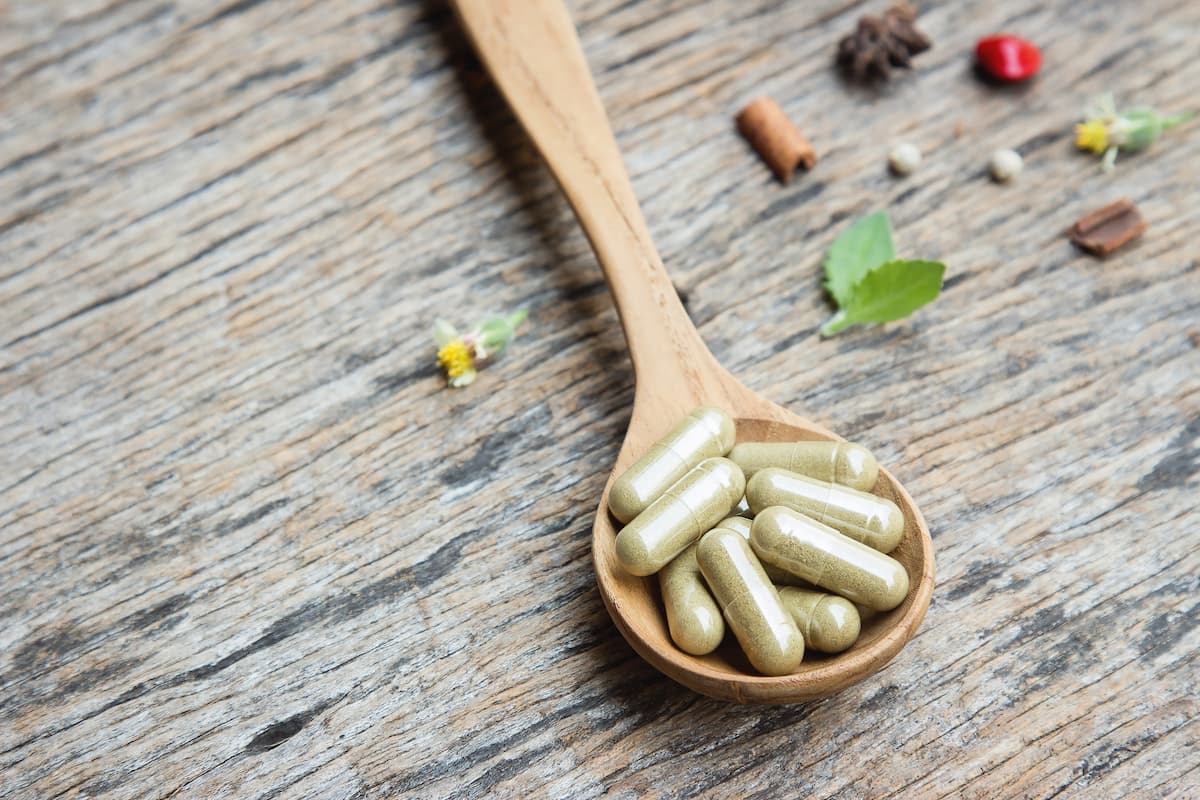
Ashwagandha affects thyroid hormone levels. Find out if you can use it.
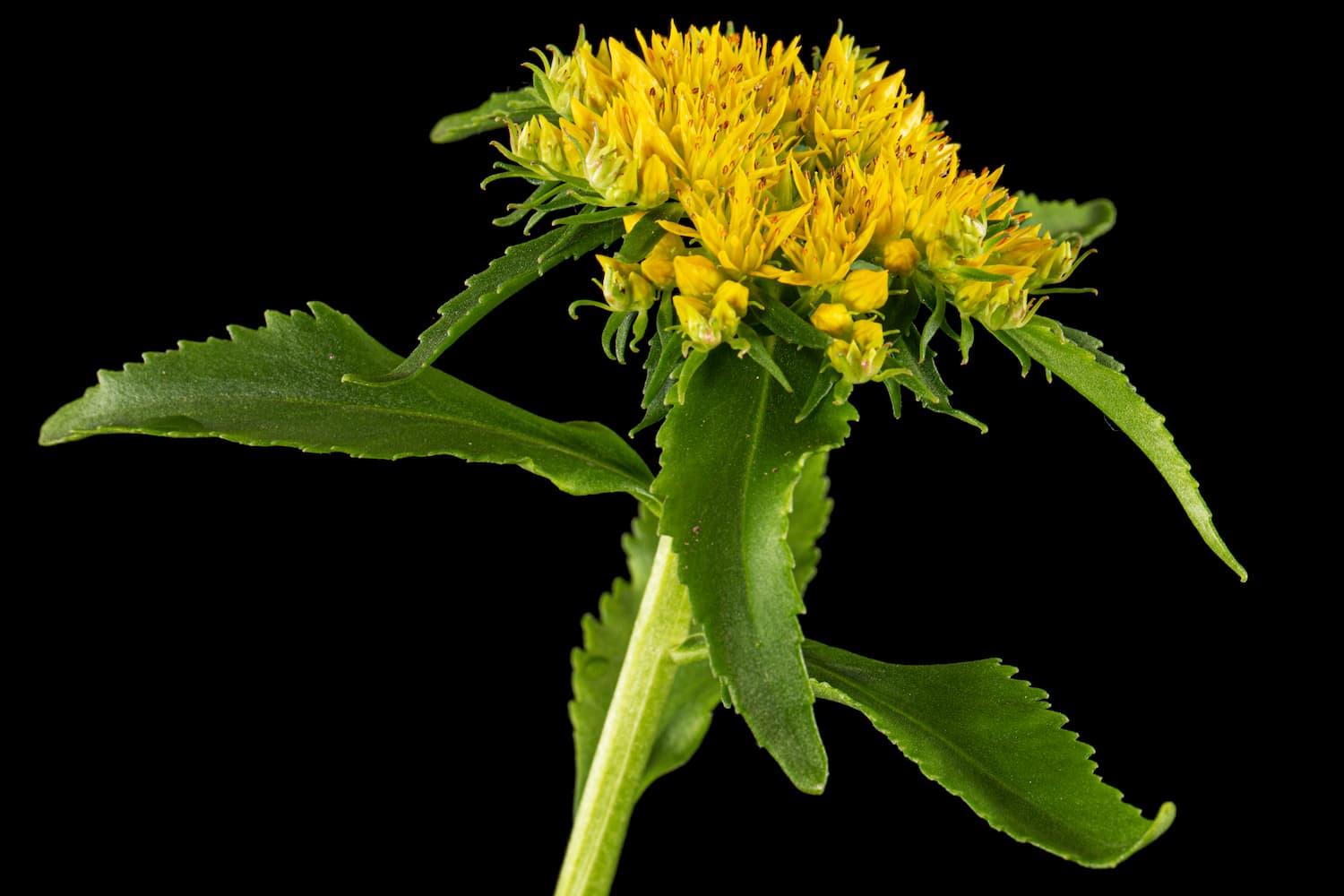
See how mountain pintail can affect your wellbeing.

Check out the opinions of doctors and other professionals about ashwagandha. Also find out what people on the forum think about it.
